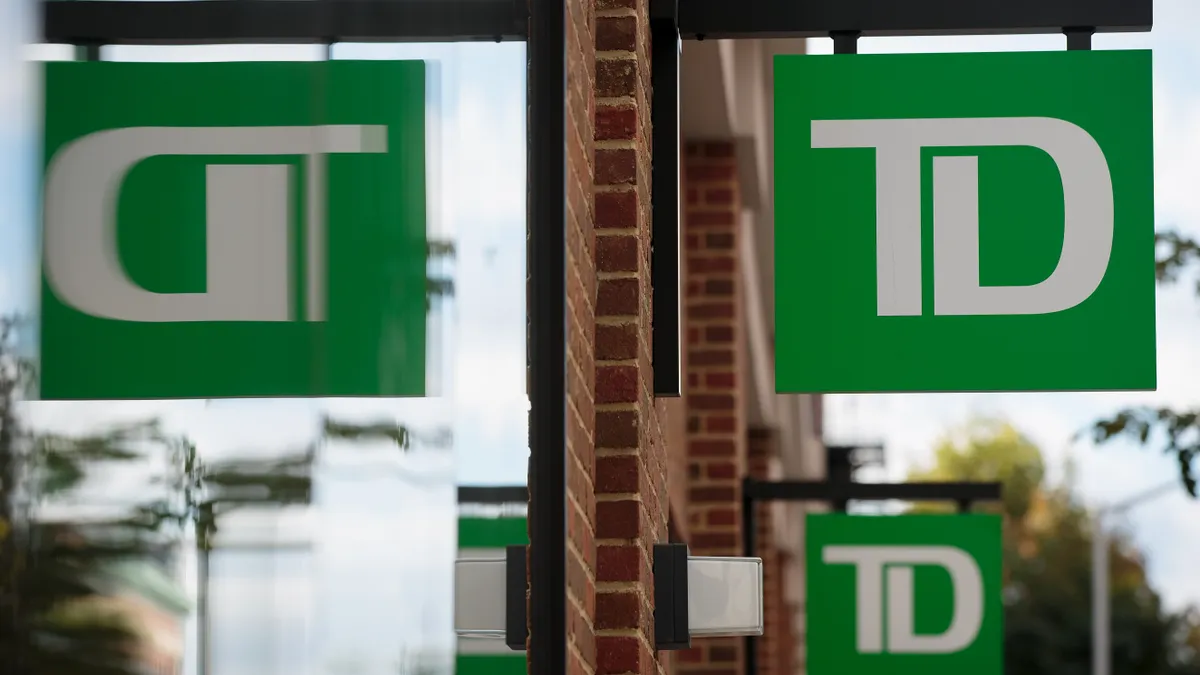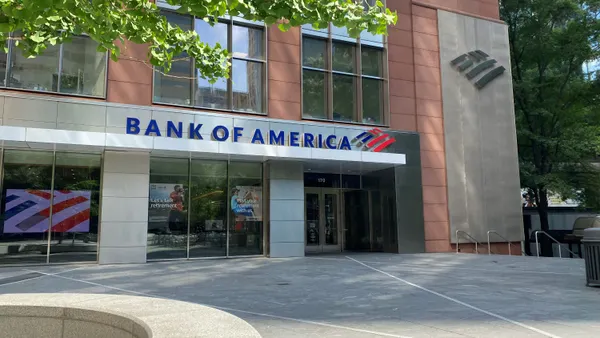The future of the potentially sixth-largest U.S. retail bank is with regulators, it’s safe to say, after the public comment period for the proposed merger between TD Bank and First Horizon closed last week.
Before the deadline, though, a dozen advocacy groups — led by the Center for Responsible Lending — wrote to officials at the Office of the Comptroller of the Currency (OCC) and the Federal Reserve Bank of Philadelphia, urging them to curb the deal.
The odds may be long. The groups, citing a 2021 article in the Yale Journal on Regulation, noted that federal bank regulators haven’t formally rejected a merger application in 15 years. Perhaps the groups are looking at the TD deal as a test of how serious the Biden administration is in ordering “more robust scrutiny” of tie-ups in the sector.
Three deals valued at $8 billion or more are pending: TD-First Horizon, U.S. Bank’s proposed acquisition of MUFG Union Bank, and Bank of Montreal’s proposed purchase of Bank of the West. And TD seems to have garnered the most pushback.
The 12 groups accused the Canadian lender of collecting a disproportionate amount of overdraft fees relative to like-sized banks. TD generated the fourth-highest total of absolute dollars from those fees last year, according to the Consumer Financial Protection Bureau (CFPB) — although the gap between the first three (Wells Fargo, JPMorgan Chase and Bank of America) and TD is sizable.
However, overdraft and nonsufficient funds fees made up one-third of TD’s noninterest income at 33% — far above the 4% proportion the fees comprised at JPMorgan Chase, or the 7% slice at Bank of America and Wells, the groups said.
Further, TD has been relatively slow to turn away from that model, the groups said, pointing to competitors such as Citi and Capital One, which abandoned charging overdraft fees. Bank of America and others, the groups added, have significantly cut the amount charged per instance, and PNC limited overdrafts to one per day.
The groups also cited a dichotomy in TD’s account structure: The bank charges its Canadian customers $5 per overdraft and a maximum of one such fee per day, but continues to charge its U.S. customers $35 per overdraft up to three times per day, including on ATM transactions and debit-card purchases.
In a statement last week to American Banker, TD pointed to its new overdraft-free bank account as one example of meeting the changing expectations of customers. The bank also said it plans to open branches in underserved areas and has launched a fund to support nonwhite-owned small businesses.
The advocacy groups, however, asserted that TD’s overdraft-free account options have limited features.
More troubling, they said, is TD’s $122 million settlement with the CFPB in 2020 over what the regulator deemed “deceptive” overdraft enrollment practices. The regulator alleged the bank charged overdraft fees without obtaining customer consent and misrepresented the terms of an optional product.
“The picture that emerges from the TD’s punitive overdraft policies and unfair and deceptive account practices, along with legislator opposition, is that TD is out of step with leaders in the field,” the 12 groups wrote last week.
Sen. Elizabeth Warren, D-MA, leads the legislative charge against the TD-First Horizon tie-up. She and three members of Congress wrote the OCC in June, citing a Capitol Forum report that alleged TD incentivized employees to enroll customers in new accounts and services like overdraft protection without their consent.
The 12 groups’ other gripes have less to do with TD in particular and are more a reaction to the potential impact of a large lender entering new markets. The merger, the groups assert, will result in higher interest rates for mortgages and for small-business loans. It will also lead to a higher likelihood of acceptance for mortgage applications — but not necessarily for nonwhite borrowers, the groups said.
The groups also expressed concern that a bank with a track record of reliance on overdraft and other fees would be entering several markets in the Southeast — home to a higher concentration of Black, Brown and lower-income consumers.
On a second-quarter earnings call last week, TD CEO Bharat Masrani said he still thinks the merger is on track for closing between November and January. TD is on the hook to pay an additional $0.65 per share if the deal is not completed before Nov. 27. The transaction can be terminated if it doesn’t close by Feb. 27, 2023. But the banks can also choose to extend that timeline — a more commonplace occurrence of late.











